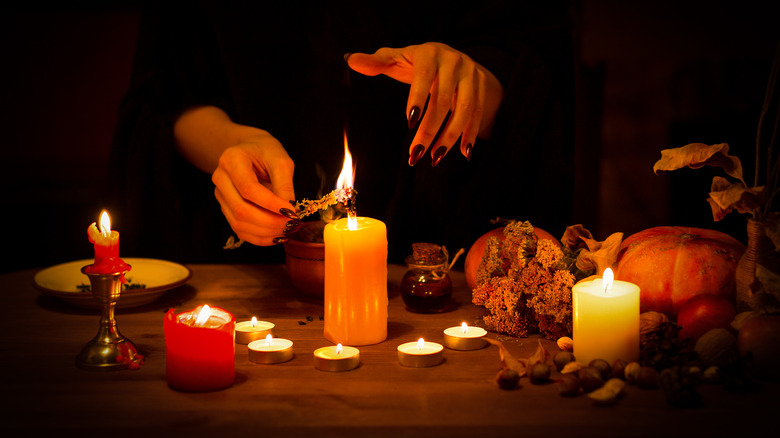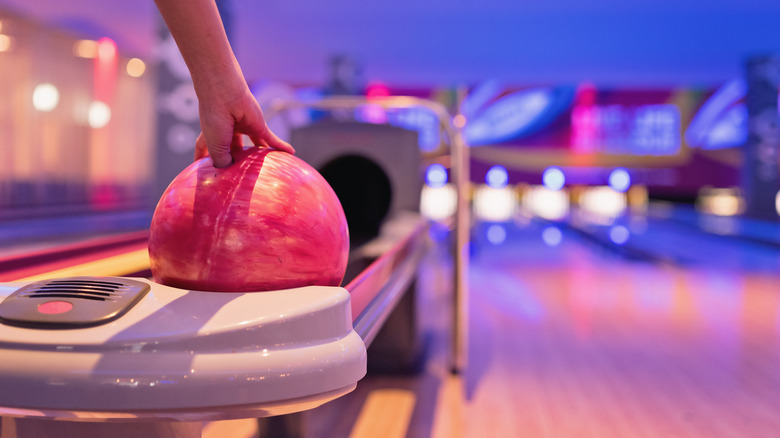The Truth About Bowling's Origins As A Dark Religious Ritual
For many bowlers, a game of tenpins is a religious activity. In South Korea, they take the game so seriously that bowling alleys are pretty much the only public entertainment spaces in the country that do not serve alcohol. South Korea was also the first to host the sport at the Olympic Games in 1988 in Seoul. The sport is also wildly popular in the United States, a country that is home to a whopping 5,000 bowling alleys, according to Travel and Leisure.
Britannica notes that bowling's history goes back millennia, and so the sport has naturally undergone a series of changes, leading to several variations in addition to the classic tenpins, including games like fivepins, ninepins, duckpins, candlepins, and skittles. In fact, the sport of bowling didn't even start off as a leisure activity at all. The first bowlers weren't after strikes or turkeys. They had a much more mystical purpose for bowling a few frames.
Bowling's original purpose was to cleanse the bowlers of sin
Located in Arlington, Texas, the International Bowling Museum & Hall of Fame honors the sport, its history, and the greatest bowlers to ever hit the lanes. The museum states that in the 1930s, while excavating the tomb of a child in Egypt, British anthropologist Sir Flinders Petrie found a collection of toys that he deduced were meant to be used as an early form of bowling. If Petrie was indeed correct in his supposition, then bowling's origins can be traced as far back as 3200 B.C.
But a German historian named William Pehle believed that bowling originated in his country around the 3rd or 4th centuries A.D. And according to Britannica, the stakes were a bit higher than mere diversion back then. It was actually a religious ritual involving the clubs used widely at the time called Kegels. Normally used for other leisure activities, as well as self-defense, the Kegels were set up at the end of a lane similar to how pins are used in bowling today. Within the ritual, the Kegels represented the Heide, or heathen. Parishioners who succeeded in knocking down all the heathen pins with a rolled stone were considered to be cleansed of sin. So while bowling is now a fun activity that brings us together, it was initially meant as an explicitly us-and-them way of dividing people further along religious lines. Luckily, now it's just a fun way to pass an evening with friends and some delicious snack bar nachos.

